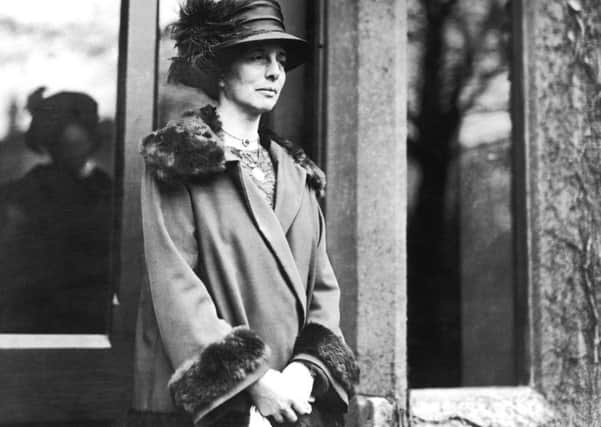Principled duchess who followed her own path


Her family, the Ramsays of Banff at Alyth, valued the education of women, one sister taking a first from Cambridge and Kitty winning a scholarship to the Royal College of Music.
Her initial opposition to women’s suffrage, but subsequent agreement to stand as Conservative candidate – she was elected for West Perthshire in 1923 – might seem a contradiction, but it was logical: she did not wish women to be involved in national politics until they had acquired sufficient experience to acquit themselves in a man’s world.
Advertisement
Hide AdAdvertisement
Hide AdAfter serving as the first Conservative woman minister – in the Department of Education from 1924-1929 – she turned to foreign affairs in the 1930s. Disregarding promotion prospects, she set up an all-party committee on the unfashionable topic of female circumcision and, appalled by the suffering it caused, tried to raise the issue in parliament, struggling to speak above male derision. The Colonial Office then refused to take up the question with foreign governments. If she could read the recent headline that, since FGM was made illegal in 1985, there have been no prosecutions, despite 42 “cases of concern” in 2014-2016, she would be dismayed with so little progress.
Kitty’s fellow Conservative MPs approved when in 1931 she wrote Conscription of a People, exposing conditions in Russian labour camps. When she discovered that a translation of Hitler’s Mein Kampf into English omitted all the controversial passages, it was in collaboration with a Labour member that she made sure a full edition was published. It was the facts that counted with her, not a party line.
Attempting to establish the facts in Spain, where the elected Republican government was under attack from Franco’s forces, she visited the war zone in 1937 with Labour MP Ellen Wilkinson and independent Eleanor Rathbone. She arranged for 4,000 children to be evacuated to Britain – a feat that seems to elude present-day politicians.
However, this concern with foreign affairs led to her constituency association losing patience with what they saw as her lack of support for the party line and they voted to choose another candidate.
Scorning to compromise her views, she resigned to fight a by-election in 1938 as an independent candidate, warning of the dangers of fascism in Europe. Faced with the party machine, and labelled the Red Duchess by opponents, she was defeated by 1,313 votes – though she was proved right the following year.
In today’s political world of bland soundbites and acrimonious exchanges, Katharine’s factual approach and independent collaboration make her an ideal role model.
Jane Anderson lives in Strathbraan, Perthshire. She is former archivist to Atholl Estates.